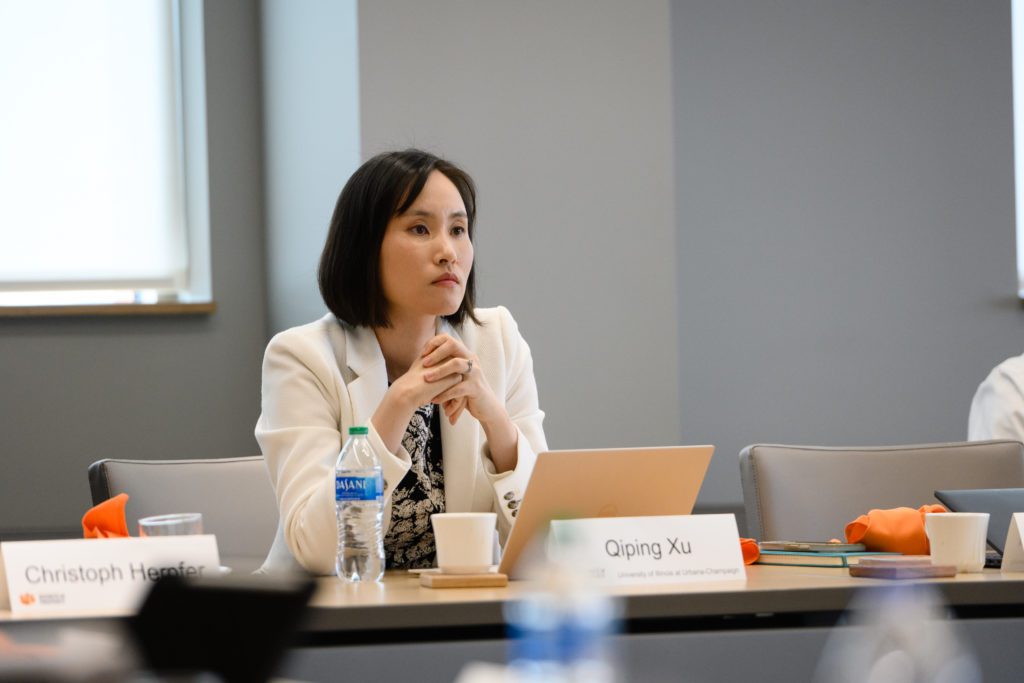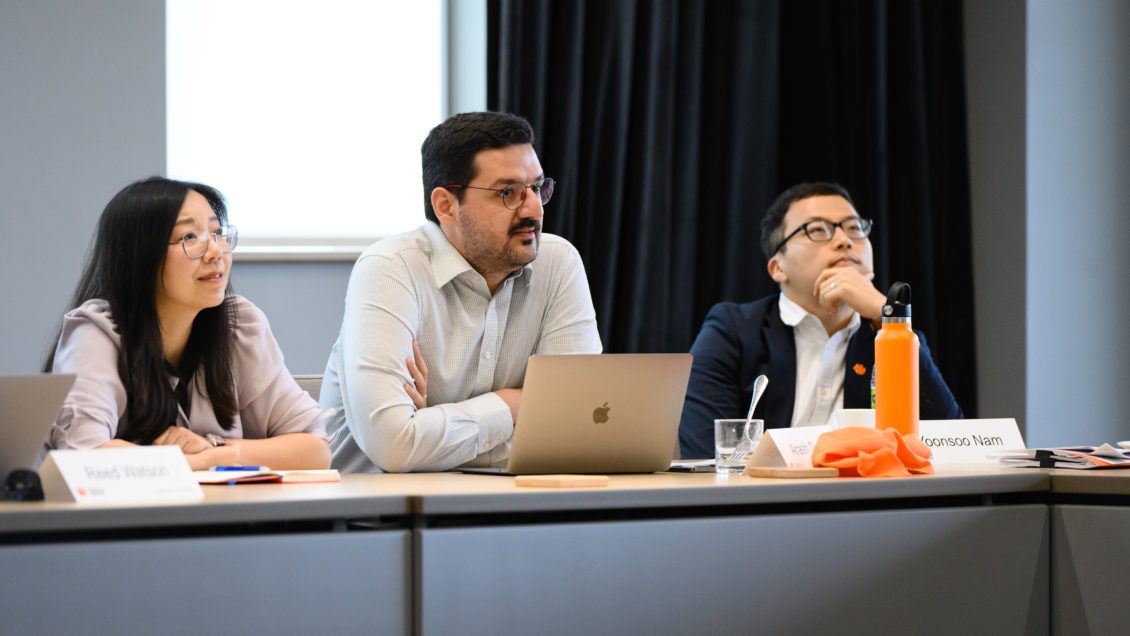Earlier this month, the Hayek Center hosted a two-day research conference that brought to Clemson’s campus the country’s leading experts on environmental, social and governance (ESG) policies.
A growing number of companies have voluntarily committed to business practices that promote environmental sustainability, social initiatives, and inclusive governance. Other companies are subject to disclosure requirements and diversity mandates. The papers presented at this conference investigate whether the benefits of these ESG policies and practices outweigh their costs.
Arash Dayani, assistant professor of finance, spoke of the conference: “The research conference investigates social and environmental policies across various aspects of the corporate world, including banking, asset management, product markets, capital investment and corporate governance.”

Reed Watson, Director of the Hayek Center and Professor of Practice in Economics, described the rigorous nature of the scholarship. “ESG is often celebrated as the new and improved form of capitalism, a movement of sorts. The papers presented at this conference took an honest appraisal of individual policies and practices; the results are mixed. While some have a meaningful effect on environmental, social, and governance issues, we learned that others are ineffective if not downright misleading to consumers and investors,” Watson said.
As productive as the conference was, many questions remain unanswered. According to Watson, “The debate is ultimately about whether businesses have responsibilities beyond maximizing shareholder value. And, if so, how can they fulfill those responsibilities in a cost-effective manner?” Because these questions are so important, the Hayek Center and the Finance Department plan to make the conference a regular event on campus and to connect the scholarship to business leaders and policymakers.
Here is a breakdown of some of the papers presented at the conference. Listed below is the title of the research paper, the researchers, presenter and discussant:
“The Impact of a Principles-Based Approach to Director Gender Diversity Policy”
Tor-Erik Bakke (Associate Professor of Finance, University of Illinois at Chicago), Laura Field (Donald J. Puglisi Professor of Finance, University of Delaware), Hamed Mahmudi (Assistant Professor of Finance, University of Delaware), and Aazam Virani (Assistant Professor of Finance, University of Arizona)
– Presenting Author: Laura Field (University of Delaware)
– Discussant: Vincent Intintoli (Clemson University)
This study investigates the impact of a principle-based approach where firms either comply with gender diversity policies or explain why they may be unable to do so. The results show that the market had a positive reaction toward principles-based regulations. Moreover, female representation increased in controlled firms.
“Banking on Carbon: Corporate Lending and Cap-and-Trade Policy”
Ivan Ivanov (Board of Governors of the Federal Reserve System), Mathias Kruttli (Board of Governors of the Federal Reserve System), and Sumudu Watugala (Assistant Professor of Finance, Cornell University)
– Presenting Author: Sumudu Watugala (Cornell University)
– Discussant: Christoph Herpfer (Emory University)
Through their research, Ivanov, Kruttli, and Watugala present that banks are acutely aware of credit risks presented by climate change regulation. These banks may also sell loans to shadow banks, effectively escaping regulatory oversight (debt to loans and lines of credit, domestic to international).

“Sustainability or Greenwashing: Evidence from the Asset Market for Industrial Pollution”
Ran Duchin (Professor of Finance, Boston College), Janet Gao (Associate Professor in Finance, Georgetown University), Qiping Xu (Assistant Professor of Finance, University of Illinois)
– Presenting Author: Qiping Xu (University of Illinois),
– Discussant: Daniel Greene (Clemson University)
This research examines the cause and consequences of pollutive plant divestitures by publicly traded firms. The results show that while publicly traded firms enjoy benefits such as higher ESG ratings and lower costs in fines from selling pollutive plants, the pollution level at the divested plants withholds.
“Consumer response to ESG news: evidence from supermarket goods”
John Chalmers (Abbott Keller Professor of Finance, University of Oregon), Arash Dayani (Assistant Professor in Finance, Clemson University), Gretchen Gamrat (Ph.D. Candidate, Finance, University of Oregon)
– Presenting Author: Arash Dayani (Clemson University)
– Discussant: Luke DeVault (Clemson University)
The study utilizes in-depth data research to analyze the effect of ESG news on consumer behaviors. The results show that consumer preference is impacted by ESG news immediately but only temporarily, measured by the sales of related products.

“Conflicting Objectives of ESG Funds: Evidence from Proxy Voting”
Tao Li (Assistant Professor of Finance, University of Florida), Lakshmi Naaraayanan (Assistant Professor of Finance, London Business School), Kunal Sachdeva (Assistant Professor of Finance, Rice University)
– Presenting Author: Kunal Sachdeva (Rice University)
– Discussant: Arash Dayani (Clemson University)
This is an expert analysis discovering that ESG funds vote for ES proposals when they are unlikely to pass. On the other hand, the proposals are voted against when approaching the passage vote.
“Stakeholder Value: A Convenient Excuse for Underperforming Managers?”
Ryan Flugum (Assistant Professor of Finance, University of Northern Iowa), Mathew Souther (Associate Professor of Finance, University of South Carolina)
– Presenting Author: Mathew Souther (University of South Carolina)
– Discussant: Ugur Lel (University of Georgia)
With an in-depth data analysis, the researchers find that executives increasingly cite stakeholder-focused objectives followed by an underperforming earning period.
The success of the ESG conference highlights the growth of the Hayek Center for the Business of Prosperity. Conferences such as this one will further increase Clemson’s reputation across the country and illustrate that scholarly research is fundamental to policy analysis.
Get in touch and we will connect you with the author or another expert.
Or email us at news@clemson.edu

